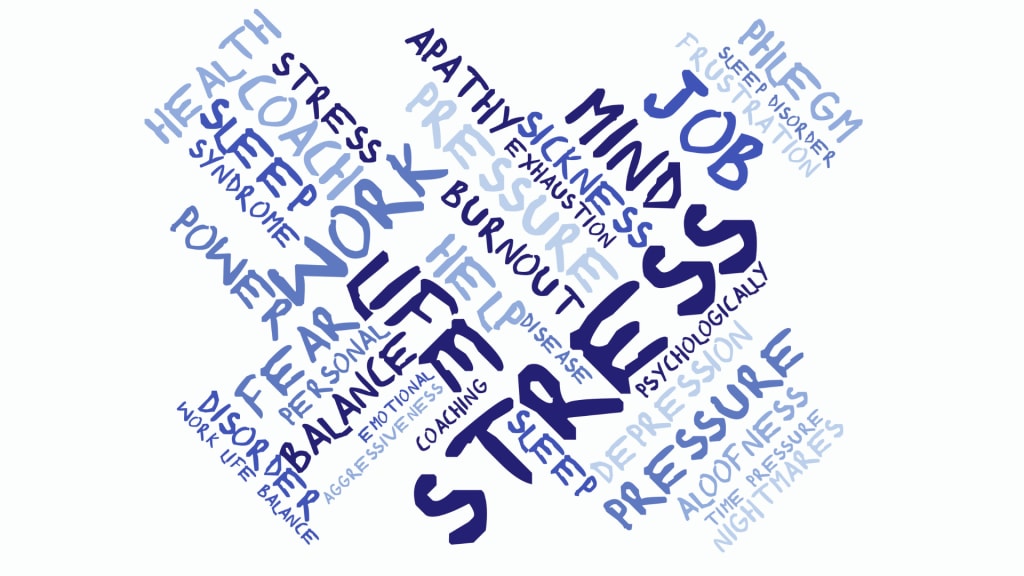Understanding Stress: The Impact on Your Health and Practical Stress Management Strategies
Cracking the Code of Stress: Exploring Its Impact on Health and Effective Strategies for Stress Management

Stress is an inevitable part of life. Whether it's caused by work pressures, relationship challenges, financial concerns, or other factors, stress can take a toll on your overall well-being. It's important to recognize the impact that chronic stress can have on your physical and mental health and develop practical strategies to manage it effectively. By understanding stress and implementing healthy coping mechanisms, you can enhance your resilience, improve your health, and cultivate a greater sense of inner peace and balance.
The Impact of Stress on Your Health
Stress, when experienced in short bursts, can actually be beneficial. It can motivate you to meet deadlines, perform at your best, and respond to challenging situations. However, chronic or long-term stress can have detrimental effects on your health. Here are some ways in which stress can impact your well-being:
Physical Health: Prolonged stress can weaken your immune system, making you more susceptible to illnesses and infections. It can also contribute to a range of health issues such as cardiovascular problems, digestive disorders, headaches, and sleep disturbances.
Mental Health: Chronic stress can take a toll on your mental well-being, leading to increased anxiety, depression, irritability, and difficulty concentrating. It can also exacerbate existing mental health conditions.
Emotional Well-being: Stress can disrupt your emotional balance, causing mood swings, feelings of overwhelm, and a reduced ability to cope with daily challenges. It can also strain relationships and impact your overall quality of life.
Behavioral Patterns: When under stress, individuals may engage in unhealthy coping mechanisms such as overeating, excessive alcohol consumption, smoking, or withdrawing from social activities. These behaviors can further contribute to physical and mental health issues.
Practical Stress Management Strategies
Fortunately, there are numerous strategies you can implement to effectively manage stress and mitigate its impact on your health and well-being. Here are some practical techniques to consider:
Mindfulness and Meditation: Practice mindfulness techniques, such as deep breathing exercises or meditation, to cultivate a sense of calm and present-moment awareness. These practices can help you develop a greater ability to respond to stressors with clarity and composure.
Physical Activity: Engaging in regular exercise is an excellent way to reduce stress levels. Physical activity releases endorphins, the body's natural mood-enhancing chemicals, and promotes a sense of well-being. Find activities that you enjoy, whether it's walking, jogging, yoga, or dancing, and make them a part of your routine.
Healthy Lifestyle Choices: Prioritize self-care by adopting a healthy lifestyle. Get enough sleep, eat a balanced diet, and limit the consumption of stimulants such as caffeine and alcohol. Nourishing your body with wholesome foods and practicing good sleep hygiene can help you better manage stress.
Time Management and Prioritization: Develop effective time management skills to reduce feelings of overwhelm. Break tasks into manageable chunks, set realistic goals, and prioritize your activities. This approach can help you stay organized and focused, reducing stress associated with deadlines and obligations.
Social Support: Cultivate a strong support network of family, friends, or support groups. Reach out to loved ones for emotional support, share your concerns, and engage in meaningful conversations. Sometimes, just talking about your stressors can provide relief and new perspectives.
Relaxation Techniques: Explore relaxation techniques such as deep breathing exercises, progressive muscle relaxation, or engaging in hobbies that promote relaxation, such as painting, gardening, or listening to calming music. These activities can help alleviate stress and induce a sense of tranquility.
Cognitive Restructuring: Challenge negative thought patterns and replace them with more positive and realistic perspectives. Practice self-compassion and cultivate a positive mindset.





Comments
There are no comments for this story
Be the first to respond and start the conversation.